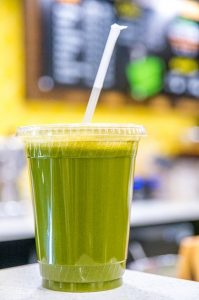Guest Post/Article Written By Jaime A. Heidel.
It is with honor that I introduce my very 1st guest writer, Jaime A. Heidel, the creator of the amazing blog, ‘I Told You I Was Sick’. Her blog is chock-full of valuable information and options pertinent to a wide range of chronic diseases. (Her site and blog posts are something that I truly hope to achieve someday.)
If you’re living with a chronic disease, you’re living with pain. Chronic diseases like fibromyalgia, chronic fatigue syndrome, rheumatoid arthritis, and Crohn’s disease are all functional disorders. Meaning, they impair your body’s ability to function at its best.
Most chronic diseases are caused by autoimmunity and neurological dysfunction.
If you have an autoimmune disease, your immune system mistakes your body’s own healthy tissues for foreign invaders and destroys them. If your condition is neurological, your nervous system doesn’t communicate correctly with the rest of your body.
Whether autoimmune, neurological, or a combination of both, having a chronic disease nearly always means living with chronic pain. While there are plenty of prescription and over-the-counter drugs to mitigate this pain, they don’t get to the root cause of disease and may cause unwanted side effects.
This is a list of the top three things you can do right now to reduce the pain of your chronic disease. These three methods have been shown to significantly reduce pain and put many conditions into remission.
- Eat a Gluten-Free Diet
I’ve been eating a gluten-free diet for 13 years, and it has changed my life. Before I eliminated gluten, I didn’t know a day without stomach cramps, muscle pain, fatigue, brain fog, learning problems, and emotional instability.
From birth to age 22, I had no idea what “healthy” felt like.
Then, at the recommendation of a naturopathic physician, I went on a strict elimination diet and discovered my body was very sensitive to gluten. I never got the biopsy to test for celiac disease, so I’ll never be sure if that’s what I have. It doesn’t matter to me. All I know is I became a new person after following the diet for a couple of years
But you don’t have to just take my word for it. Research has indicated that a gluten-free diet can help ease fibromyalgia pain naturally while significantly reducing gastrointestinal complaints, fatigue, and brain fog.
A study published in BMC Gastroenterology specifically looked at women who had both celiac disease and fibromyalgia. At baseline, each woman had poor Quality of Life (QOL) and Visual Analogue Scales (VAS)
After one year on the gluten-free diet, there was a decrease of 51 to 60 percent in Tender Points (TP) and fibromyalgia Impact Questionnaire (FIQ). There was also an accompanying increase of 46 to 60 percent in SF-36 Physical and Mental Component Summary Scores.
Also, you don’t have to have celiac disease to benefit from the incredible pain-relieving benefits of a gluten-free diet.
According to a study published in Rheumatology International, multiple patients presenting with an array of chronic ailments, ranging from gastrointestinal disorders to hypothyroidism, responded remarkably well to the gluten-free diet.
All patients involved in the study, regardless of their condition, experienced a dramatic decrease in their level of widespread chronic pain. For 15 of the patients, the pain completely disappeared.
When you commit to a gluten-free diet, you must be strict and follow through for a minimum of three months to notice results. Most people living with a chronic disease will need to follow the diet for a year or more to notice significant changes.
No matter how frustrating it may seem at first, following a gluten-free diet is 100 percent worth it. Just think, if you start today, in a year from now, your chronic disease may be completely in remission!
- Start Juicing Every Day
Juicing is one of the safest and easiest ways to reduce the pain of chronic disease. Most people living with a chronic condition have poor digestion. This means they are unable to take in all the necessary nutrients from food, even if they eat a healthy diet.
From Mercola.com:
When you drink fresh, live juice, it’s almost like receiving an intravenous infusion of vitamins, minerals, and enzymes because they go straight into your body without needing to be broken down.
Dr. Mercola goes on to explain that those who are new to juicing and/or have a severe chronic disease should start off slow, with perhaps one or two glasses of juice per week before progressing to daily juicing.
 As the juice fills your body with nutrients, it helps detoxify your system of accumulated toxins. This may cause a temporary increase in symptoms and strong food cravings, but these are usually short-lived and tolerable for most.
As the juice fills your body with nutrients, it helps detoxify your system of accumulated toxins. This may cause a temporary increase in symptoms and strong food cravings, but these are usually short-lived and tolerable for most.
Furthermore, there is no need to spend hundreds of dollars on a good juicer. I love my Hamilton Beach Big Mouth Juice Extractor and recommend it all the time. It’s easy to assemble, use, and clean, and it turns a bunch of organic vegetables into a glass of juice in seconds!
To learn more about the health benefits of juicing and the best way to do it, watch Dr. Mercola’s informative interview with Dr. Andrew Saul:
https://www.youtube.com/watch?v=QDKywAZAfJ4
- Make Meditation a Priority
Meditation is a simple practice of relaxation that increases mindfulness (being in the moment), decreases stress, and helps the body heal itself.
Meditation is a great way to reduce the pain of chronic disease without the side effects of prescription and over-the-counter drugs. It can be done virtually anywhere with no special equipment or instructions.
According to a study published in The Journal of Pain, older adults who struggled with chronic low back pain reported a decrease in pain, improved quality of life, better sleep, and an increased sense of well-being as a direct result of regular meditation.
A study published in the Journal of Psychosomatic Research revealed that patients with arthritis and chronic back/neck pain experienced a significant decrease in pain intensity and functional limitations after practicing mindfulness-based stress reduction techniques.
No matter how long you’ve been living with a chronic disease, it is never too late to heal. By doing these three things regularly, you may able to reduce or even eliminate your chronic pain, and enjoy a better quality of life.
Sources:
http://www.biomedcentral.com/1471-230X/13/157
http://www.ncbi.nlm.nih.gov/pmc/articles/PMC4209093/
https://asunews.asu.edu/20150205-sara-mata-stevens
http://www.sciencedirect.com/science/article/pii/S1526590008005440
http://www.ncbi.nlm.nih.gov/pubmed/20004298



